New Faculty Faces for 2023: Marlboro and School of Communication
Each year, Emerson Today introduces new faculty to the community with a brief bio and invites them to answer five quick questions about their field, their classroom, and their personal interests.
In 2023, Emerson is welcoming 17 new faculty members across all departments, as well as nine faculty members who already had been teaching at Emerson, but are returning in new roles.
We’re starting with the Marlboro Institute of Liberal Arts and Disciplinary Studies and the School of Communication. Check back for new School of the Arts faculty.
Marlboro Institute
New Faces
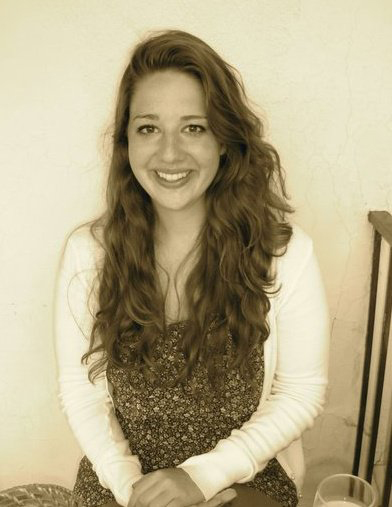
Mollie Hamilton
Scholar-in-Residence
Mollie Hamilton has conducted research on topics such as bilingual language acquisition and somatosensory development, as well as several projects pertaining to the development of visual working memory. Her dissertation asked how the ability to inhibit previously learned, no-longer-relevant information (proactive interference) might contribute to working memory capacity limitations in early childhood.
She has a PhD in psychology from the Brain and Developmental Sciences Department at the University of Massachusetts Boston. Before deciding to be a scientist, her dream was to become an opera singer, so she holds a BMus in vocal performance from Ithaca College.
What’s the most exciting thing happening in your field right now?
I am a cognitive psychologist and I study how babies learn language and how their memories work. An exciting thing that is happening in my field right now is a growing interest in communicating our science to policy makers so that the research can have a greater impact and promote social justice.
What’s the last thing you learned?
I am trying to learn Japanese, so the last thing I learned was some Japanese vocabulary!
We’re looking for recommendations. What book, film, artist, TV series, play, publication, etc. should we know about?
I really like Only Murders in the Building right now. And a book I read recently and enjoyed was Maybe You Should Talk to Someone by Lori Gottlieb.
What do you want students to take away from your classes?
I absolutely love to teach, because it is an opportunity to share what I am passionate about, but also because it is an opportunity to learn and hear about what my students know and love. I want my students to know that working hard and persevering are the most important. You don’t have to be the best. You don’t have to be the fastest, you just have to keep growing! I hope my students leave my classes with energy and enthusiasm for what lies ahead!
What do you love to do when you’re not working?
I love to travel and learn new languages, sing and play the piano, read and write poetry, and go to the beach and swim.
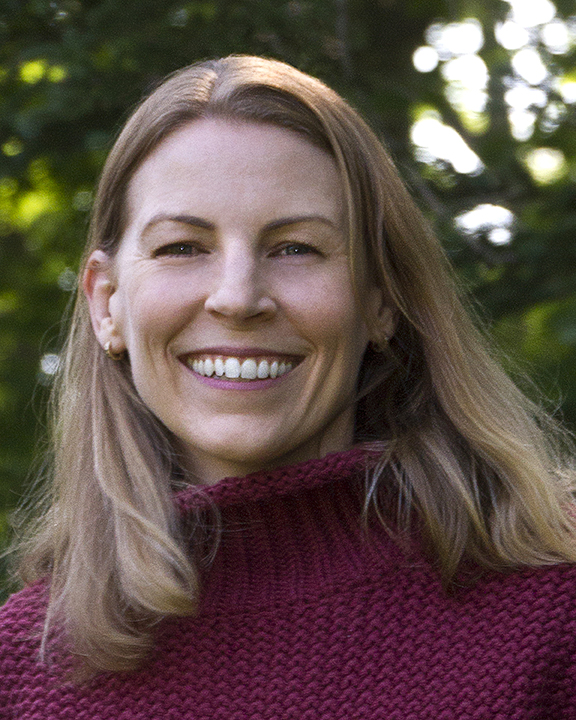
Jennifer McWeeny
Professor
Jennifer McWeeny’s research and teaching interests are in philosophies of gender and race, phenomenology, decolonial studies, feminist theory, and philosophy of mind. She has published more than 30 articles and book chapters, as well as three co-edited books on interdisciplinary and cross-cultural philosophies: Feminist Philosophy of Mind (2022), Speaking Face to Face: The Visionary Philosophy of María Lugones (2019), and Asian and Feminist Philosophies in Dialogue: Liberating Traditions (2014).
McWeeny is the recipient of the Fulbright U.S. Scholar National Research Award (France), and the editor-in-chief of Simone de Beauvoir Studies.
She holds a PhD in philosophy and an MA in French literature from the University of Oregon, an MA in comparative philosophy from the University of Hawaii, and a BA in biology and philosophy from Colorado College.
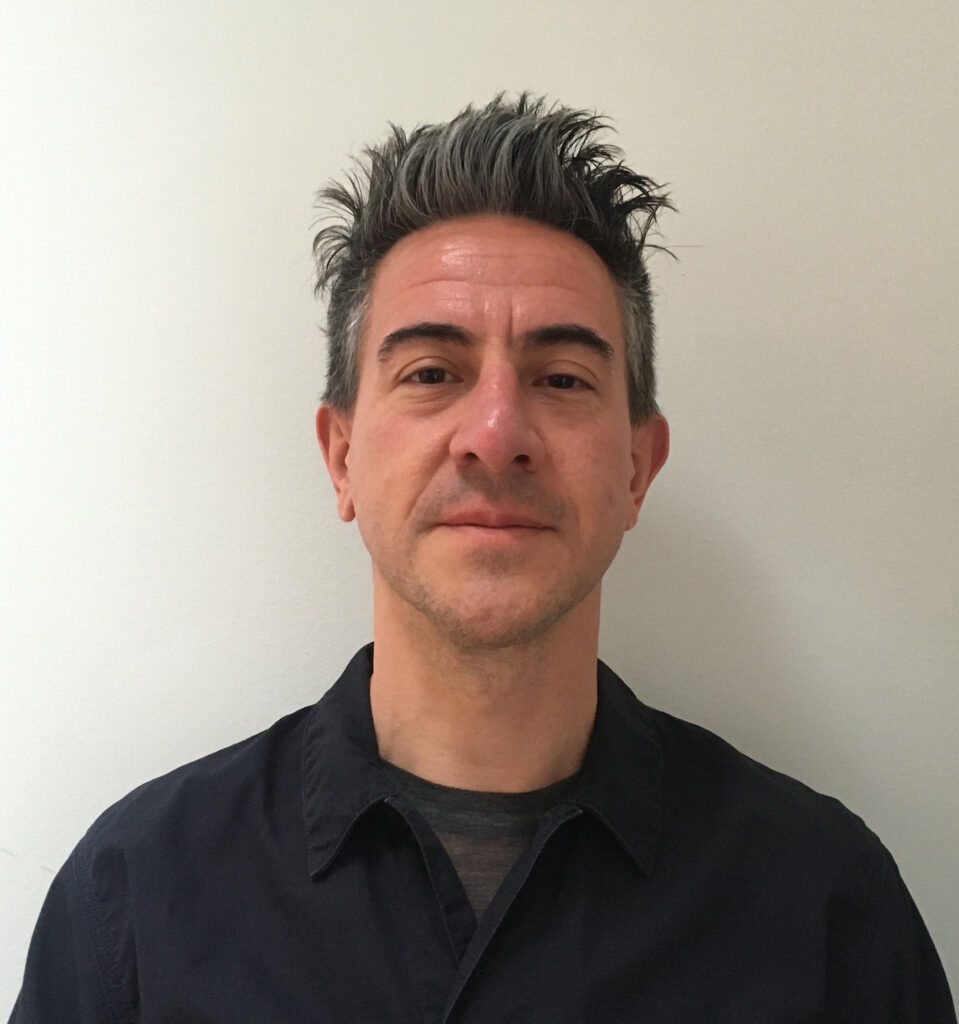
Ben Roth
Assistant Professor
Before coming to Emerson, Ben Roth taught philosophy and writing at Tufts, Harvard, and Boston universities. He works in the areas of philosophy of art, especially literature and film; continental philosophy (Heidegger and existentialism, broadly construed); and the role that narrative plays in understanding and self-constitution.
Beyond his scholarly work, he has published public-facing criticism and more than two dozen short stories. A native of St. Louis, he has lived in Massachusetts for more than two decades. He currently lives in Cambridge with his partner, Lucy, who works in the art world. He spends most of his free time reading fiction, and wishes he spent more of it hiking.
He holds a PhD from Boston University and a BA from Williams College.
What’s the most exciting thing happening in your field right now?
After decades of insularity, philosophy is trying to make itself relevant to the wider culture again through more public writing. Actually, though, I kind of want to reject the premise of this question. What is most important about philosophy is not what’s trendy and exciting, but the perennial task of asking and starting to answer fundamental questions about what we should value and how we should live. There’s not much change here, rather always the next generation ready to go through that process.
What’s the last thing you learned?
Like a lot of people, during the pandemic I learned to bake sourdough bread and cut my own hair. Unlike most people, I’ve continued doing both.
We’re looking for recommendations. What book, film, artist, TV series, play, publication, etc. should we know about?
A few years ago, I made a recommendation flowchart for philosophical novels. Two of my favorites have recently been reissued: Marlen Haushofer’s The Wall and Dino Buzzati’s The Tartar Steppe (as The Stronghold). Marie NDiaye’s My Heart Hemmed In is a new existentialist classic that more people should read.
What do you want students to take away from your classes?
First, where so much contemporary culture stops at opinion such that disagreement ends the possibility of further conversation, to be able to provide and evaluate reasons for beliefs. Second, by reading difficult but rewarding texts, whether argument-based or narrative, a deeper ability to concentrate and resist distraction.
What do you love to do when you’re not working?
I read an enormous number of novels and go for long walks, both in the woods and wandering through the city.
School of Communication
New Faces
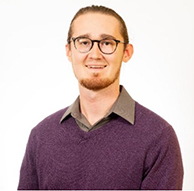
Cameron J. Bunker
Assistant Professor
Marketing Communication
Cameron Bunker is a social scientist who examines the relationships between social media and the self, and will be teaching Media Psychology at Emerson. His research program focuses on how people think, feel, and behave on social media relative to physical life, and how cultural background influences this relationship. His ultimate goal is to bridge ideas across disciplines to promote healthy relationships between people and technology.
Bunker uses methods ranging from cross-sectional and longitudinal designs, self- and peer reports of personality, and behavioral data collected via logged smartphone use. He has published in high-impact interdisciplinary journals such as Cyberpsychology and Computers in Human Behavior.
He completed his PhD and MA degrees in social psychology at Arizona State University, and his BS degree in psychology and philosophy at Grand Valley State University.
What’s the most exciting thing happening in your field right now?
Do people neglect their real-life responsibilities for digital life? Or do people use social media to explore new ways of self-expression and connecting with others, thus helping them to overcome adverse experiences in their offline lives? The duality whereby people use media adaptively versus maladaptively is a central issue in the field of media psychology. Media psychologists like myself are committed to investigating this social problem and promoting healthy relationships between people and technology.
What’s the last thing you learned?
You need to read the instructions for IKEA furniture VERY closely.
We’re looking for recommendations. What book, film, artist, TV series, play, publication, etc. should we know about?
If you are interested in media and media effects, read Re-understanding Media: Feminist Extensions of Marshall McLuhan, edited by Sarah Sharma and Rianka Singh (Duke University Press). It expanded the way I think about media effects.
What do you want students to take away from your classes?
Students should leave my class with a rich network of connections they’ve made between the material and their self (identity, lived experiences, etc.), and further develop skills to communicate these connections with others.
What do you love to do when you’re not working?
I love keeping in touch with friends, working out, and reading fiction (my last read was A Little Life by Hanya Yanagihara).
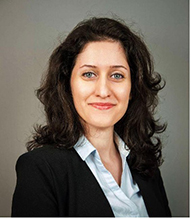
Ziba Karjoo
Assistant Professor
Business of Creative Enterprises
Ziba Karjoo is an economist who specializes in international trade and macroeconomics. Her interests include international trade, innovation, environmental economics, and econometrics.
Prior to joining the faculty at Emerson, she worked as a data scientist and economic researcher. Beyond her research, she is an enthusiastic educator, teaching economics in a dynamic learning environment.
She holds a PhD from the University of New Hampshire, where she was honored with the graduate student teaching award from the Department of Economics. She also earned a certificate in College Teaching from the Centers for Excellence and Innovation in Teaching and Learning at UNH.
Jessie Quintero Johnson
Associate Professor and Director, Health & Social Change
Communication Sciences and Disorders
A licensed and practicing clinical social worker, Jessie Quintero Johnson’s teaching, research, service, and mental health practice reflect her commitment to understanding and improving mental health for all people, but especially those from marginalized and disenfranchised communities. She has developed and taught a variety of courses related to health communication, mental health and psychology, media effects, and clinical social work practice.
Her research explores how media perpetuate the stigma surrounding mental health and illness, and seeks to identify best practices for communicating persuasive health information to ameliorate mental health stigma. Her interests in mental health communication have led to interdisciplinary, collaborative research projects, which have been published in a variety of peer-reviewed journals, such as the Journal of Health Communication, Media Psychology, Health Communication, and Women’s Studies in Communication.
Quintero Johnson has a PhD in communication from the University of Illinois at Urbana-Champaign, an MSW from Boston College, an MA in communication from Washington State University, and a BA in psychology and communication from Whitworth University.
New Roles
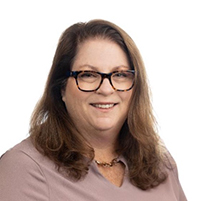
Angela Anderson Connolly
Executive-in-Residence
Journalism
Angela Anderson Connolly ‘90 worked as a radio journalist for more than three decades. She has worked as a reporter, anchor, and news director on the local and national levels, and has experience in television news as a producer.
She was an Emerson affiliated faculty member from 2014-2019, and received the Alan L. Stanzler Award for Outstanding Teaching in 2019. She also was recognized as Advisor of the Year for her work with WEBN/RTDNA in 2019. She will teach Broadcast/Multimedia Journalism and Visual and Audio Storytelling as Executive-in-Residence.
Anderson Connolly has an MA in journalism from the University of Missouri and a BS in broadcast journalism from Emerson.
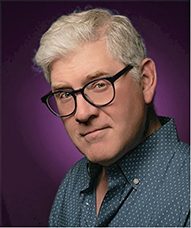
Mark Brodie
Executive-in-Residence
Communication Studies
Mark Brodie, MA ’00, who was an affiliated faculty member at Emerson before becoming Executive-in-Residence, specializes in digital storytelling, non-profit management communications, sports communication, and public diplomacy. His primary focus is to use storytelling as a tool to foster cross-cultural relationships and mutual understanding, and his practices strive to create impactful content aimed at inspiring meaningful action.
Brodie spearheads the cross-cultural film production and education component of the Rediscover Rosarito Public Diplomacy and Digital Storytelling program, for which he is the executive producer of the Rediscover Rosarito Film Festival. He founded the student organization Common Collective, which has undertaken creative projects of significance, collaborating with prominent entities including ESPN, the National Institutes of Health, and numerous nonprofit organizations focused on social justice, equity, and inclusion. He also holds multiple patents for durable medical equipment products that challenge conventional notions of patient mobility and independence.
Brodie received his BA degree from Bowdoin College, followed by a MA in integrated marketing communication from Emerson.
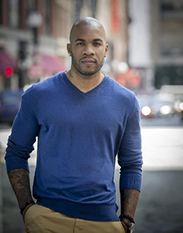
Jae Williams
Executive-in-Residence
Business of Creative Enterprises
Jae Williams ’08, MA ‘16, affectionately known as “Dr. Jae,” is an award-winning educator and scholar whose research highlights how the history of race in America and higher education play a role in the lack of diverse stories seen in mainstream media. He has spent over a decade supporting diversity, equity, and inclusion initiatives in K-12 and higher education.
In 2022, Williams was awarded the prestigious Dean’s Medal for Outstanding Doctoral Work, Northeastern University’s highest student honor, for his dissertation titled, America’s Empathy Deficit: Our Bloody Heirloom and the Invisible Backpack. In Spring 2022, he launched the Creative Café Collective, a media production company that features the popular podcast, Dr. Jae’s Office Hours, which focuses on building a dynamic learning community anchored in social justice and centering students from marginalized communities. He also shares a weekly newsletter, Educator Unplugged, an intimate journal series shared to inspire personal growth, hope, and lifelong learning.
Prior to being named Executive-in-Residence, Williams held a number of positions at Emerson, including affiliated faculty member, director of special projects for the Social Justice Collaborative, and digital media producer in the Office of Web Services. He holds a PhD from Northeastern, as well as a BA in directing narrative fiction and an MA in integrated marketing communication, both from Emerson.
Categories